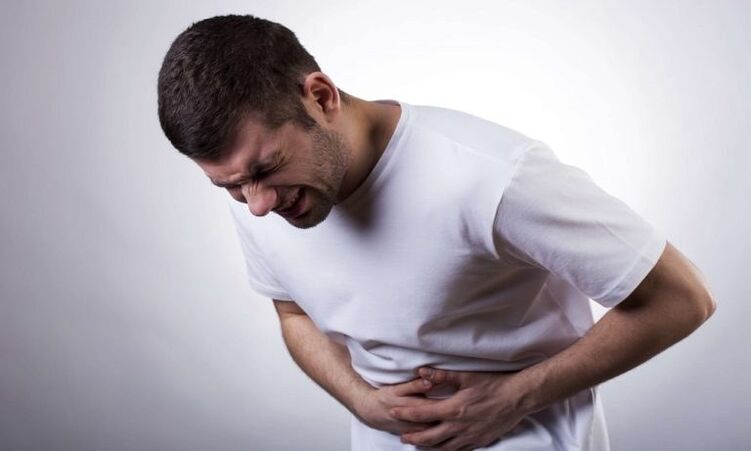The presence of parasitic organisms in the body not only leads to discomfort and the appearance of unpleasant symptoms, various diseases develop and the state of health deteriorates sharply. Certain types of parasites endanger not only health but also life. A dangerous environment causes a decrease in immunity, damage to the integrity of internal organs. Doctors give an alarm, more than eighty percent of all diseases are caused by parasites, or the result of their lives in the body. The statistics are alarming: one in four adults and one in two children are infected with helminths. Very often a person does not know about the presence of worms until the condition becomes critical. Where do human worms come from? After all, the infection occurs even in people who strictly follow the recommendations and try to rule out any contact with the pathogenic environment. Let’s try to figure out how to avoid the infection that will be the cause of the helminthic invasion.
The main routes of infection are: where the worms come from

There are different ways to infect with parasites. Worms are a problem for all ages, although children are the most vulnerable. They get to know the world by actively researching objects to their liking and lacking constant hygiene habits. Infants become infected primarily due to the use of plant products without prior washing, violation of hygiene rules after contact with pets, and licking of dirty fingers. Worms are a very common phenomenon in children.
The mechanism of infection by adults with parasites is virtually the same. Most helminthiasis develops as a result of disregard for personal hygiene rules. Infection often occurs as a result of contact with sick people or animals, use of contaminated household items and things. In addition to improper heat treatment of meat and fish, there is a high risk of disease. Biohelminthiases penetrate the human body in this way. Fish and meat should be carefully cooked, steamed or fried to minimize the likelihood of pathology. Drinking contaminated water, swimming in an unknown body of water, or working with unprotected hands in the garden can cause worms to appear in an adult’s body.

The main routes of infection are:
- Mouth stool. The pathogen enters the body with contaminated food or water. This group of helminths lives predominantly in the intestines. The pathogen goes through a full developmental cycle and secretes eggs that go out with the feces of the farmer. After entering the external environment, the parasite is introduced into the body of another host.
- Through the ground. The transmission of parasites in this way is due to human contact with the contaminated soil. The mode of transmission is similar to the previous version of the infection, but the eggs end up in the soil not only with the feces but also with other secretions from the host.
- Hematogenous. Parasites enter the host through insect bites. Infected bloodsuckers carry helminth eggs.
- Biohelminthiasis. A complex infectious system in which several intermediate and permanent hosts are present.
The life cycle of parasites
The different types of intestinal worms have their own developmental cycle, but their general structure is the same: the larva develops from an egg, which eventually turns into an adult, sexually mature individual.
Considering the peculiarities of development, there are three groups of parasites:
- contact;
- geohelm samples;
- biohelminths.
Infection with contact parasites occurs predominantly with dirty hands. Geohelm samples evolve without an intermediate host. The eggs ripen in the ground. This group of parasites enters the human body through the oral cavity or skin. Biohelm samples have the most complex developmental cycle, with several intermediate hosts.
Symptoms of helminthiasis
Once the parasites have invaded the human body, the first symptoms may appear immediately or after a time when the number of worms increases significantly or the sole representative of the species grows large. The first blow is taken by the immune system.

Signs of general deterioration appear gradually:
- fatigue;
- poor sleep;
- apathy;
- lethargy;
- dizziness.
Such symptoms are due to a growing lack of nutrients and ingredients absorbed by the parasites, which impoverishes the human body. People with helminthiasis are weak and irritable. Gradually, certain symptoms appear, which depend on the type of helminth, the localization in the given organ.
Worms in the liver
Parasites enter the organ through the blood or orally. As the disease progresses, the following symptoms can be observed:
- Body temperature rises by several degrees. With the mass of parasites in the organ, necrosis, abscess can begin, in which case the temperature rises to critical values.
- The mucous membranes and skin become yellowish as the gland produces large amounts of bilirubin.
- When you feel it, you can enlarge the liver. The patient feels an eruption in the organ, pressing on adjacent tissues. He begins to interfere with his right abdominal pain, breathing becomes difficult.
- Clinical blood tests show increased eosinophil content.
- Often worried about nausea, unpleasant taste in the mouth. Some patients complain of dizziness.

Intestinal worms
Most parasites prefer to live in the intestines. It is an ideal place for feeding, development and reproduction. In the intestines, mature individuals secrete eggs, which are released into the environment along with the patient’s feces.
Symptoms of localization of helminths in this organ include:
- Indigestion in the form of constipation or diarrhea, nausea and vomiting.
- Disgust with food, complete anorexia.
- Changing eating habits. The patient rejects his favorite foods, preferring unusual flavors.
- Presence of blood in the stool.
- Very strong spasmodic abdominal pain.
- Presence of parasites or fragments thereof in the stool, vomiting.
- Ileus.

Worms in the lungs
The worms enter the lungs with blood flow. The localization of helminths in the respiratory system causes great damage to the body. Symptoms of lung damage include:
- Chest pain.
- Exhaustive cough with expectoration.
- Increased body temperature.
- Hearing wheezing in the chest.
- Difficulty breathing, formation of asthmatic component.
With mass sowing of the lungs, there is a high probability of complications in the form of pneumonia, airway obstruction, necrosis, or abscess.
Worms in the eyes
Localization of helminth larvae in the eyes leads to severe vision problems. Symptoms of the presence of parasites in the eye include:
- Visible seals under the eyelids.
- Pain and movement in the eyes.
- Sharp decrease in visual acuity.
- Changing the position of the eyeball.
- Progressive wink.
- Constant secretion from the eye.

Worms in the brain
The presence of parasites in the brain is one of the most serious conditions, as intestinal worms irreversibly damage nerve fibers. Very often, the disease ends in the death of the patient.
Symptoms of brain parasites include:
- Severe migraine headache.
- Dizziness.
- Nausea, vomiting.
- Connection of neuropsychiatric disorders.
Helminthic invasive therapy
Parasites are often detected in the bodies of adults and children. The awareness of the presence of pathogenic individuals in their own bodies is quite unpleasant. It is necessary to start the appropriate treatment in time. Only a qualified professional should prescribe anthelmintic medications.
To confirm or deny the suspicion, it must be examined and tested.
Your doctor will suggest any method to detect intestinal worms: complete blood count, stool, urine, ultrasound or x-ray, endoscopy, or CT. Treatment is prescribed based on the type of parasite identified. The pharmaceutical industry is ready to offer many effective drugs against worms. Treatment can be done with a single or course use of a drug. It all depends on the type of parasite, the location and amount of localization, and the general condition of the patient.
When you notice the fact of helminthiasis in the family, it is recommended to treat the parasites in the body to everyone who lives together. Human intestinal worms are not only an unpleasant but also a very dangerous disease that threatens to develop many complications. You can’t ignore the situation and you can’t use medications. Only a doctor can prescribe a cure that is as effective and harmless as possible.
There are folk recipes that can become a powerful support for the body against helminthiasis. Medications can be used as an adjunct to or prevention of medication. It should be understood that you cannot take traditional medicine on your own. Initially, you need to find information about the parasite, find the location of the localization. If possible, your doctor will suggest adding alternative medical prescriptions to your therapy.
The following herbal ingredients are considered the best folk remedies: pumpkin seeds, wormwood, ginger, herbal preparations, tansy, sea buckthorn.

Preventive measures
Worm infection is not as harmless as it may seem at first glance. The disease undermines health, negatively affects the general condition. For infants, helminthiasis is much more dangerous: the child is severely underdeveloped, often ill.
Preventive measures are simple and easy to implement, you just need to develop a few good habits:
- Wash hands before eating, after walking, in public places.
- Perform deworming of pets.
- Only eat washed plant foods.
- Do not drink boiled water or swim in unknown bodies of water.
- Work in the garden or in the vegetable with gloves.
- Prepare meat and fish dishes thoroughly.
- He refuses to buy food in spontaneous markets.
And while it is impossible to completely defend against a helminthic invasion, it is indeed possible to minimize the risks by following the recommendations of experts. Don't be sick!



























